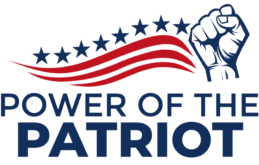Newsom’s Rogue Trade Plan CRUSHED by Trump’s Ironclad Tariffs!

California Governor Gavin Newsom is vowing to go it alone on trade policy, but legal experts warn he may be sailing straight into constitutional waters he’s not authorized to navigate.
After President Donald Trump announced a bold new round of tariffs aimed at leveling the global trade playing field, Newsom responded with a dramatic counterproposal: California would seek to establish “strategic trade relationships” and ask international partners to exempt the state from retaliatory tariffs. “California is a stable, reliable partner,” Newsom posted on social media. “We want your business.”
But legal scholars say that kind of freelancing could run afoul of the U.S. Constitution, which reserves matters of foreign commerce and international agreements to the federal government—not individual states.
“There is a reason the Constitution prohibits states from entering into treaties or engaging in foreign commerce,” said Donald Kochan, executive director at George Mason University’s Law and Economics Center. “Even insinuating that California can negotiate trade exemptions undermines the federal government’s authority to speak with one voice.”
Kochan referenced the Supreme Court’s 2000 decision in Crosby v. National Foreign Trade Council, which struck down a Massachusetts law targeting Burma on grounds that it interfered with federal foreign policy. The ruling emphasized that the Constitution’s Supremacy Clause bars states from stepping into federal domains, especially when it comes to international affairs.
That hasn’t stopped Newsom, who is openly encouraging foreign governments to cut deals with Sacramento instead of Washington. Following Trump’s 90-day pause on reciprocal tariffs—with the notable exception of steep new penalties on China—Newsom doubled down, claiming California would provide stability in contrast to what he called “turbulence” from the White House.
Legal analysts say Newsom’s posture may be more about political optics than real diplomacy. “Asking for favors isn’t unconstitutional,” said Stanford law professor Alan Sykes. “But if California starts striking agreements that have substance, especially ones that influence trade, that’s a different story.”
And there’s the rub: California doesn’t control U.S. tariff policy. Nor can it override federal trade enforcement. That makes any attempt to form meaningful agreements with foreign governments both toothless and potentially illegal, depending on their scope.
Tim Meyer, a professor of international law at Duke University, noted that while informal “arrangements” between states and foreign powers do occur, they are typically symbolic and limited. “California could offer regulatory incentives in exchange for tariff exemptions, but any deal would need to be non-binding and consistent with state law,” he said.
In other words, it’s possible to flirt with the edges of international diplomacy, but it’s risky business if states start behaving like sovereign nations.
Newsom is no stranger to overstepping constitutional limits. In 2019, he signed a symbolic agreement with Canada to coordinate zero-emission vehicle regulations—an act that raised eyebrows at the time but stopped short of triggering legal action. Still, it set a precedent for the kind of soft diplomacy he now appears eager to revive.
“There’s always a risk when states push the envelope,” said Josh Blackman, a constitutional law professor at South Texas College of Law. “Courts have allowed certain cooperative measures in the past, but that doesn’t mean every agreement will fly.”
Critics of Newsom’s move see it as more posturing than policy—an attempt to score points with global elites and progressive donors by thumbing his nose at Trump’s America-first trade agenda. But even symbolic gestures can undermine national cohesion, experts warn, especially when they blur the line between state and federal authority.
While Newsom may claim his state represents 14% of the U.S. GDP and is the world’s fifth-largest economy, none of that grants him the constitutional authority to negotiate with foreign powers. His approach may play well on social media, but in the eyes of the law, it’s a political stunt dressed up as diplomacy.
“If every state did what California is doing,” Kochan warned, “we’d have 50 different trade policies and no coherent foreign strategy.”
As Trump continues to enforce a trade crackdown with the full weight of federal authority behind him, Newsom’s freelancing risks not only legal challenges—but also diplomatic confusion. Foreign governments may quickly realize that deals with governors don’t carry the weight of treaties, and gestures from Sacramento don’t mean much in Beijing or Brussels.
Bottom line: Newsom may want to run his own foreign policy, but the Constitution still says otherwise.
